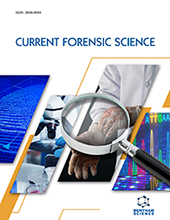Abstract
Next-generation sequencing methods have advanced greatly since Sanger sequencing, allowing for increased data yield, productivity, and utility. Read time can be used to categorize the upcoming technological generations. This article summarizes the differences between the two technological paradigms, the second-generation (short-read) kind, and the third-generation (long-read) variety. Popular technologies such as Ion Torrent and Illumina stand in for short-read sequencing methods, whereas Oxford Nanopore and Pacific Biosciences are used to represent long-read sequencing approaches. The introduction of the first next-generation sequencing (NGS) technology about ten years ago completely transformed the study of genetics. Whole genomes are now mapped and published practically weekly as a result of speed and cost advances. The number of scholarly papers and conference presentations highlighting the forensic uses of NGS in multiple forensic genetic laboratories has somewhat increased from the previous year. These results show that NGS provides new opportunities for forensic genomic investigation. To gather more information from multiple specimens in a single experiment, combinations of different markers, such as Short Tandem Repeats (STRs), Single Nucleotide Polymorphisms (SNPs), insertion/deletions, and mRNA, can be used instead of the usual Polymerase Chain Reactions- CE techniques. The most significant forensic STR loci's true spectrum of variation and hitherto unknown STR alleles have been discovered. We will address the possible use of singlemolecule sequencing and NGS in forensic science.
Keywords: Next generation sequencing, short read sequence, long read sequence, forensic science, massive parallel sequencing, deoxyribonucleic acid.








